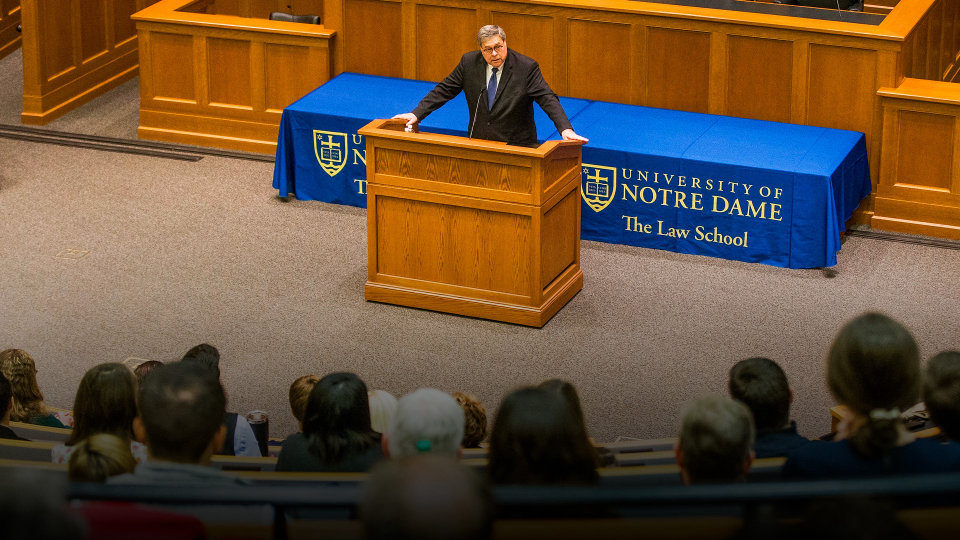Kerby Anderson
In a normal world, it would be newsworthy when the Attorney General of the United States gives an impassioned speech about religious liberty. But we don’t live in that world, so the speech by William Barr has been either ignored or ridiculed.
When he spoke at Notre Dame, he reminded the audience that the founders of this country had a “supreme test as a free society.” That test was “whether the citizens in such a free society [could] maintain the moral discipline and virtue necessary for the survival of free institutions.”
He explained that failing that test would lead to one of two tyrannies. The citizens would either embark on an “unbridled pursuit of personal appetites at the expense of the common good” or else coercive government would step in “to impose restraints.”
He then asked what is the source of virtue and moral discipline that is necessary for self-government. That, he answered, is religion. “Religion helps teach, train, and habituate people to what is good.” This comes in various forms from formal religious training to informal rules (customs, traditions).
That is the problem. Religion is not popular in our secular culture. In fact, it is very unpopular. Those who defy the secular creed of our day, “risk a figurative burning at the stake—social, educational and professional ostracism and exclusion waged through lawsuits and savage media campaigns.”
Each week on my radio program we provide an ever-growing list of examples of hostility to religion, religious values, and religious people. Bakers, florists, printers, videographers, photographers, teachers, and students experience criticism and persecution.
Now, more than ever, we need to make the case for the positive value of religion in general and Christianity in particular in our society.
 Listen Online
Listen Online Watch Online
Watch Online Find a Station in Your Area
Find a Station in Your Area











 Listen Now
Listen Now Watch Online
Watch Online
